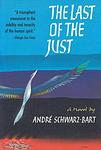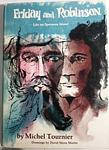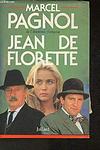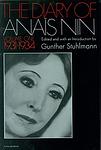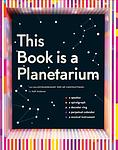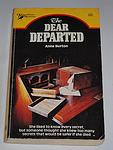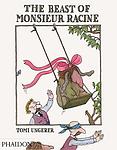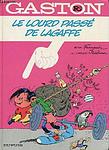The Greatest French "Fiction" Books Since 1950
Click to learn how this list is calculated.
This list represents a comprehensive and trusted collection of the greatest books. Developed through a specialized algorithm, it brings together 286 'best of' book lists to form a definitive guide to the world's most acclaimed books. For those interested in how these books are chosen, additional details can be found on the rankings page.
Genres
Countries
Date Range
Reading Statistics
Click the button below to see how many of these books you've read!
Download
If you're interested in downloading this list as a CSV file for use in a spreadsheet application, you can easily do so by clicking the button below. Please note that to ensure a manageable file size and faster download, the CSV will include details for only the first 500 books.
Download-
26. The First Man by Albert Camus
"The First Man" is a semi-autobiographical novel that explores the life of a man named Jacques Cormery, who grows up in poverty in Algeria, loses his father at a young age, and struggles with his relationship with his illiterate mother. The narrative delves into themes of identity, memory, and the human condition, as Jacques attempts to understand his past and his father's life, while simultaneously grappling with the harsh realities of colonial Algeria. Despite the challenges, Jacques remains determined to rise above his circumstances through education and personal growth.
-
27. Second Thoughts by Michel Butor
"Second Thoughts" is a complex, stream-of-consciousness novel that unfolds during a train journey from Paris to Rome. The protagonist, a businessman, is traveling to meet his mistress, but as the journey progresses, he becomes increasingly introspective and starts to question his decisions. The narrative is nonlinear and fragmented, mirroring the protagonist's mental state, and the novel explores themes of time, memory, identity, and the nature of reality.
-
28. Marivaux: Three Plays by Pierre Carlet de Chamblain de Marivaux
"Marivaux: Three Plays" is a collection of three significant works by a renowned 18th-century French playwright. The plays explore themes of love, deception, and class in the context of French society of the time. The characters are often caught in complex situations that test their moral values and emotional resilience, providing readers with a profound understanding of human nature and societal norms. The plays are known for their sophisticated language, psychological depth, and intricate plot twists, making them a classic in French literature.
-
29. The Horseman on the Roof by Jean Giono
"The Horseman on the Roof" is a historical novel set in 19th century France during a cholera epidemic. The story revolves around an Italian nobleman who is a member of a secret revolutionary group. He is forced to flee his homeland due to political turmoil and ends up in Provence, where he encounters and falls in love with a beautiful woman. As he travels through the plague-ridden countryside, he faces various trials and struggles, reflecting on the nature of honor, duty, and love.
-
30. The Last Of The Just by André Schwarz-Bart
The book is a poignant and harrowing narrative that follows the tragic history of the Levy family over eight centuries, focusing on the lineage of the "Just Men" - thirty-six pure souls in each generation said to bear the sufferings of the world. The story culminates with the life of Ernie Levy, who, despite the encroaching horrors of the Holocaust, maintains an unwavering faith in human goodness. His journey through the ghettos and concentration camps of World War II Europe is a testament to the endurance of the human spirit in the face of unspeakable evil, as he upholds his family's legacy of compassion until his last breath.
-
31. Friday by Michel Tournier
The novel tells the story of Robinson, a European man who becomes the sole survivor of a shipwreck on a remote tropical island. He attempts to create a civilization in his image, but his efforts are largely unsuccessful. When a native named Friday eventually arrives on the island, Robinson attempts to teach him his ways. However, Friday, who is free-spirited and in tune with nature, fundamentally challenges Robinson's worldview. The novel explores themes of colonialism, the nature of civilization, and the tension between individual freedom and societal order.
-
32. L'Abbé C by Georges Bataille
"L'Abbé C" is a provocative novel that explores the life of a Catholic priest who is caught in a web of forbidden love and sexual desire. The story is set in the early 20th century and follows the tormented life of an unnamed priest who is struggling with his religious vows and his illicit feelings for a young woman. This intense psychological novel delves deep into the themes of faith, morality, and the nature of desire, presenting a stark and controversial portrayal of religious life.
-
33. The Day of the Dolphin by Robert Merle
The book follows a brilliant and dedicated scientist who successfully trains dolphins to communicate in English. His ultimate goal is for them to become the world's first underwater spies, capable of infiltrating enemy territories undetected. However, his plans are derailed when the dolphins are kidnapped for a sinister plot to assassinate the President. The scientist must race against time to save both his dolphins and the President.
-
34. The Vice-Consul by Marguerite Duras
This novel follows the story of three lonely, dispossessed people in Calcutta, India: a troubled former French diplomat, a young French woman haunted by her past, and a poverty-stricken Indian woman. As their lives intersect, they grapple with desire, despair, and the struggle for redemption. The narrative is a complex exploration of colonialism, privilege, and the human condition, told through the lens of these three characters' tragic and intertwined lives.
-
35. Things: A Story of the Sixties by Georges Perec
This novel follows the lives of a young couple living in Paris during the 1960s. The couple, both freelancers, dream of a luxurious lifestyle filled with expensive goods and high-class culture. However, they struggle to achieve their aspirations due to their low income. The book explores themes such as consumerism, societal pressure, and the gap between dreams and reality, providing a critical look at the materialistic desires and ambitions of the young generation during the sixties.
-
36. Manon des sources by Marcel Pagnol
"Manon des Sources" is a poignant tale set in rural France. It is the story of a young woman, Manon, who lives in the French countryside and discovers that her family's water source has been blocked by two neighboring farmers. To avenge her father's death, which she believes was caused by this act, she decides to withhold the water source from the entire village, leading to a series of tragic events. The narrative explores themes of greed, revenge, and the profound connection between humans and nature.
-
37. The Roots of Heaven by Romain Gary
The novel is set in post-World War II French Equatorial Africa and follows Morel, a French environmental activist who is fighting to protect elephants from extinction. Morel's crusade against elephant poaching not only draws the attention of other Europeans living in Africa, but also inspires a range of African characters to join his cause. The narrative explores themes of freedom, nature, and the struggle against colonialism and commercial exploitation.
-
38. A Change Of Heart by Michel Butor
This novel delves into the psychological and emotional journey of a Frenchman who takes up a teaching position in Manchester, England. Struggling with the bleakness of the post-war English landscape and the cultural dissonance he experiences, the protagonist embarks on a profound internal journey. Through his interactions with the city, its architecture, and its inhabitants, he undergoes a transformation that challenges his preconceptions and alters his perception of life. The narrative, rich in introspection and vivid descriptions, explores themes of alienation, the search for identity, and the possibility of personal renewal amidst the ruins of the past.
-
39. The Diary of Anais Nin, 1931-1934 by Anaïs Nin
This book is a deeply personal journal of a woman's life from 1931 to 1934, providing an intimate look into her experiences, thoughts, and emotions during this period. The author explores her relationships, her struggles with her writing, and her journey of self-discovery. The diary also captures her interactions with notable personalities of the time, giving readers a unique glimpse into the cultural and social milieu of the early 20th century. Her introspective and poetic style adds a layer of depth to her observations and reflections.
-
40. La siesta de M. Andesmas by Marguerite Duras
"La siesta de M. Andesmas" is a psychological novel that revolves around the protagonist, an old man who has commissioned a house for his daughter and is waiting for the architect in the vast, desolate landscape. As he waits, he reflects on his life, his relationships, and his regrets. The narrative is characterized by its minimalistic style and its exploration of themes such as memory, time, and the human condition.
-
41. The Planetarium by Nathalie Sarraute
In "The Planetarium," the narrative delves into the complex web of human relationships and the subtle power dynamics within a Parisian family. The story unfolds through a series of internal monologues and fragmented conversations, focusing on a young writer who seeks recognition and support from his self-absorbed aunt. The aunt, preoccupied with her own social status and the maintenance of her bourgeois lifestyle, becomes the center of a psychological exploration of pretense, manipulation, and the struggle for authenticity in a world governed by social appearances. The novel dissects the intricacies of familial expectations and the individual's quest for identity amidst the pressures of societal conformity.
-
42. My Father's Glory by Marcel Pagnol
The book is a nostalgic memoir that paints a vivid portrait of early 20th-century life in the French countryside, as seen through the eyes of a young boy. It recounts the author's idyllic childhood summers spent in the hills of Provence, where he develops a deep bond with his father, a schoolteacher. The narrative is filled with warmth and humor, as it explores themes of family, nature, and the simple joys of rural life. The boy's adventures and the colorful characters he encounters in the Provençal landscape are lovingly described, evoking a sense of wonder and affection for a bygone era.
-
43. A Little Sun In Cold Water by Francoise Sagan
This novel explores the complex and tumultuous life of a Parisian journalist who, feeling disillusioned and weary of his superficial existence in Paris, seeks solace and meaning in the provincial town of Limoges. There, he embarks on a passionate affair with a younger woman, hoping to find in this relationship the warmth and authenticity his life has been lacking. However, as the narrative unfolds, the protagonist is confronted with the harsh realities of love, the constraints of societal expectations, and the relentless pursuit of personal fulfillment. Through elegant prose and insightful character development, the story delves into themes of love, despair, and the eternal search for happiness in a world that often seems cold and unforgiving.
-
44. Dear Departed by Marguerite Yourcenar
"Dear Departed" is a reflective and poignant exploration of the human condition, delving into themes of mortality, memory, and the enduring impact of the past on the present. Through a series of letters and personal narratives, the book weaves together the lives of various characters, each grappling with the loss of loved ones and the quest for meaning in the face of death. The narrative serves as a meditation on the ways in which individuals cope with grief and seek to preserve the essence of those they have lost, ultimately offering a profound commentary on the universal experience of mourning and the delicate balance between holding on and letting go.
-
45. Cleaned Out by Annie Ernaux
"Cleaned Out" is a poignant autobiographical novel that delves into the life of a young woman coming of age in post-war France. The narrative follows her journey from a working-class background through her experiences at a boarding school and university, where she grapples with the social and sexual mores of the time. The protagonist's struggle with an unwanted pregnancy and the subsequent illegal abortion is a central and harrowing theme, reflecting the broader issues of female autonomy and the class divide. The novel is a stark and unflinching exploration of identity, memory, and the societal pressures that shape the lives of women.
-
46. Cordelia And Other Stories by Françoise Mallet-Joris
"Cordelia And Other Stories" is a collection of evocative short stories that delve into the complexities of human relationships, emotions, and the various facets of life. Each story in the anthology explores the inner lives of its characters, often focusing on women grappling with love, identity, and societal expectations. The narratives are marked by their psychological depth and the author's keen insight into the subtleties of human nature, all conveyed through a prose that is both elegant and incisive. The title story, "Cordelia," stands out as a poignant examination of the bonds between a mother and daughter, highlighting the themes of connection and alienation that resonate throughout the collection.
-
47. The Interrogation by J. M. G. Le Clezio
"The Interrogation" is a narrative about a man named Adam Pollo, a former student and possible deserter from the military, who is living alone in a seaside town. Throughout the story, Adam's mental state deteriorates as he struggles with existential questions, social isolation, and an inability to distinguish between reality and his own thoughts. His erratic behavior and increasingly unstable mind lead to an inevitable confrontation with society.
-
48. The Three Robbers by Tomi Ungerer
"The Three Robbers" is a captivating children's book about three fierce robbers who terrorize the countryside, stealing from the rich and leaving the poor with nothing. However, their lives take an unexpected turn when they encounter a lonely little girl named Tiffany, who teaches them the power of love and compassion. Through vivid illustrations and a heartwarming storyline, this book teaches young readers the importance of kindness and the transformative nature of friendship.
-
49. Gaston by André Franquin
"Gaston" is a comic strip series that follows the humorous misadventures of a lazy and accident-prone office junior working at the fictional company Spirou. The series is known for its slapstick humor, but it also subtly satirizes the corporate world. Despite his lack of productivity and constant mistakes, Gaston never gets fired, highlighting the absurdity and inefficiency of bureaucracy.
-
50. The Voyeur by Alain Robbe-Grillet
"The Voyeur" is a psychological thriller that revolves around the protagonist, a watch salesman, who visits an island town to sell watches but becomes the prime suspect in a young girl's murder. The narrative delves into the mind of the salesman, constantly blurring the lines between reality and his fantasies. The book is known for its experimental narrative style, with the author often repeating scenes with minor variations and leaving the reader to question the truth.
Reading Statistics
Click the button below to see how many of these books you've read!
Download
If you're interested in downloading this list as a CSV file for use in a spreadsheet application, you can easily do so by clicking the button below. Please note that to ensure a manageable file size and faster download, the CSV will include details for only the first 500 books.
Download


